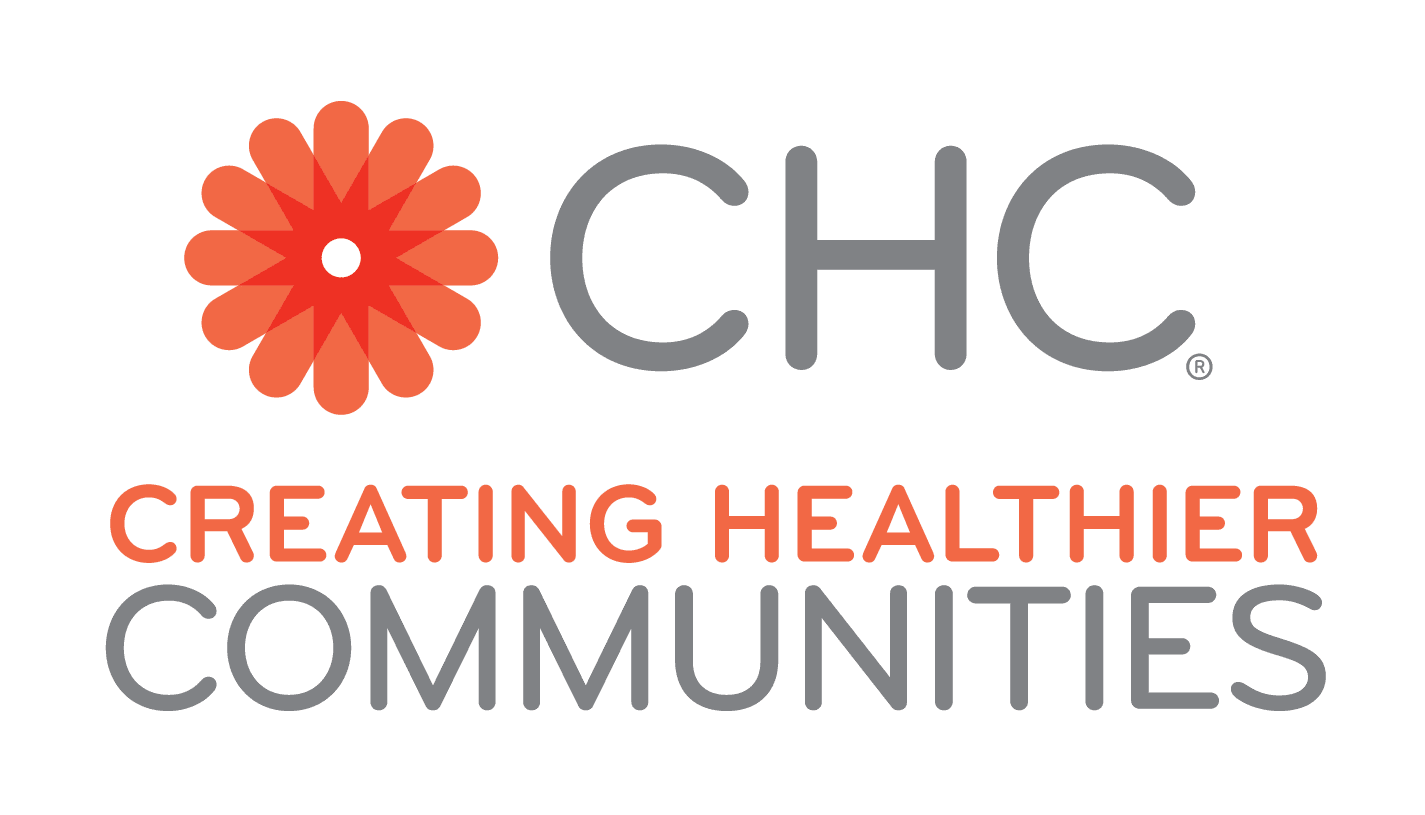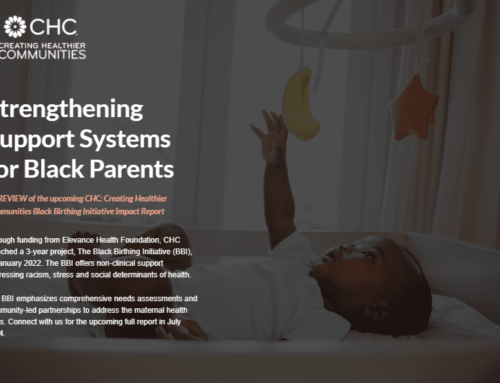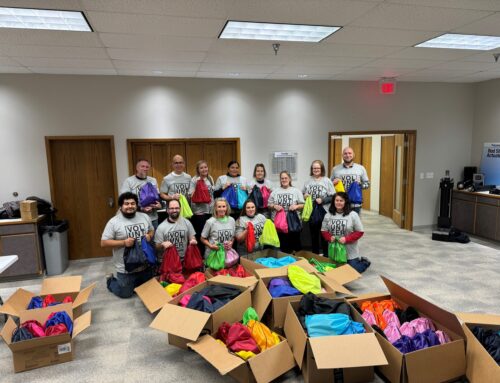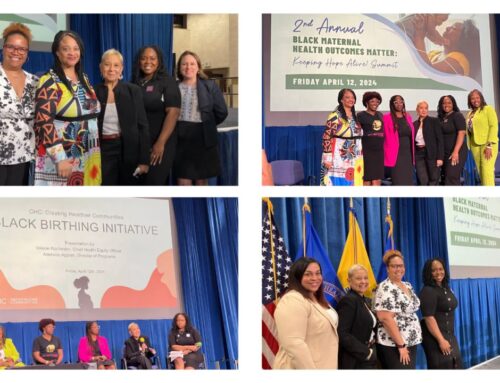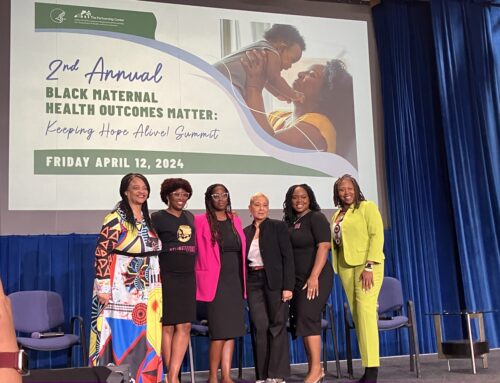The Crucial Role of Black Doulas in Maternal Health
By: Valerie Rochester, CHC Chief Health Equity Officer
At CHC, we recognize that true progress and change begin with listening to and centering the experiences of those most impacted by systemic inequities and injustices. For supporting Black maternal health outcomes, a viable and supported Black doula workforce is an effective, time-tested support system that fosters greater health equity, improves birthing outcomes and realizes healthcare cost savings.
Innovations in healthcare and standards of care often arise from the recognition of unmet needs and the dedication to fill those gaps with thoughtful solutions. Within the realm of maternal care, one such innovation is not rooted in new technologies, procedures or even artificial intelligence, but in the tradition of birth advocates and doulas. In investing in enhancing the Black doula workforce, we advocate for a social support system that has been entrenched in Black culture in the United States through generations. Historically, doulas were responsible for assisting those giving birth and midwives and were often among the few enslaved individuals who were allowed to travel due to the indispensability of their services. However, as births moved into hospitals, the non-clinical support system declined — removing an invaluable service for expectant mothers, particularly those within communities disproportionately affected by maternal mortality rates and limited access to medical care and birthing services.
Increasingly, research suggests that doulas are not only beneficial in better health outcomes, but also in reducing unnecessary medical procedures and, therefore, healthcare costs. A recent study of Medicaid beneficiaries found that women who received doula support had both lower cesarean and preterm birth rates. Further, a recent report by Elevance Health* had similar findings and also reported lower postpartum anxiety and depression. And yet most insurance companies do not cover doula care and few states offer coverage of doula services through Medicaid. We applaud states like Washington that have taken measures to elevate maternal care standards by allocating compensation for birth advocates. These measures, along with other investments in Black communities, play a pivotal role in dismantling systemic disparities within healthcare by bridging gaps in communication, representation, and trust.
Doulas provide a familiar, relatable and trusted presence in birthing spaces, helping to counteract the pervasive effects of racial and medical bias and discrimination and support mothers in asserting their agency. We call for more investments in communities and community birth workers who can shift the trajectory of maternal health outcomes, impacting families beyond the labor and delivery room. We embrace the opportunity to celebrate Black maternal health and Black birth workers during Black Maternal Health Week and look forward to highlighting our community partners who are creating a future where everyone can thrive.
*Elevance Health Foundation funds CHC’s 3-year Black Birthing Initiative to improve maternal health outcomes for Black women and birthing people. The Black Birthing aims to address preventable health disparities faced by Black birthing individuals through a pilot intervention offering non-clinical support addressing racism, stress, and social determinants of health needs. The initiative’s core components include screening and intervention to identify risk factors for preterm birth, community partnerships with eight organizations for community-centered strategies, and offering non-clinical services like doula support, education, and advocacy. Learn more about this initiative in our preview impact report.
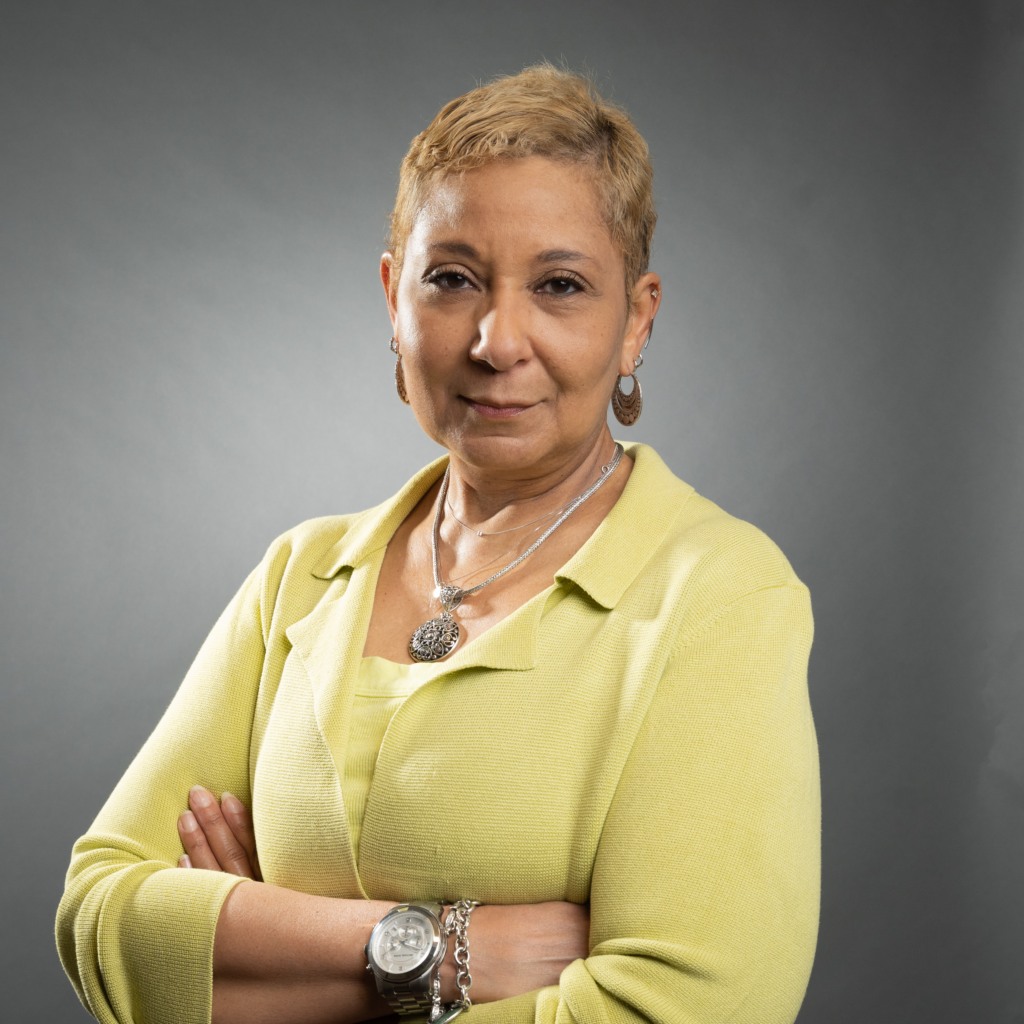
Valerie L. Rochester has over 25 years’ experience as a public health strategist, working across public and community health, social services and health philanthropy sectors. She lives by and approaches her work in alignment with one of her favorite quotes – “Service is the rent we pay for the privilege of living on this earth.”
In May 2021, she became Chief Health Equity Officer with Creating Healthier Communities, providing strategic direction for the organization’s health equity focus, including its community-centered and justice-focused culture and ensures funding investments and other resources are directed to those who are leading the work in their communities.
Included in her prior work experience with a range of community based and national organizations are as Chief Program Officer at AIDS United, a leading national HIV advocacy, policy and grantmaking organization in Washington, DC., and Director of Programs & Training with the Black Women’s Health Imperative. Because of her commitment to addressing health inequities in Black and brown communities, Valerie is a past recipient of the Congressional Black Caucus Healthcare Hero Award.
